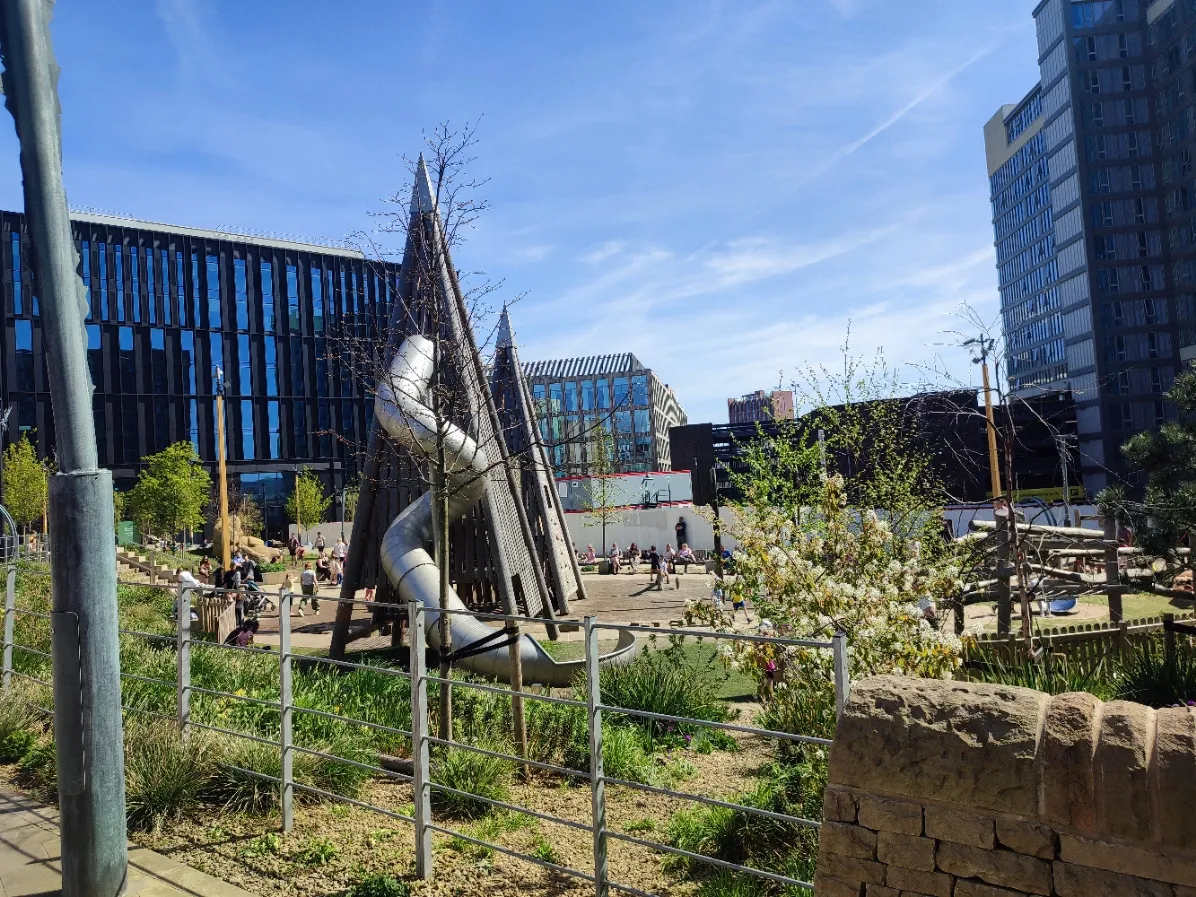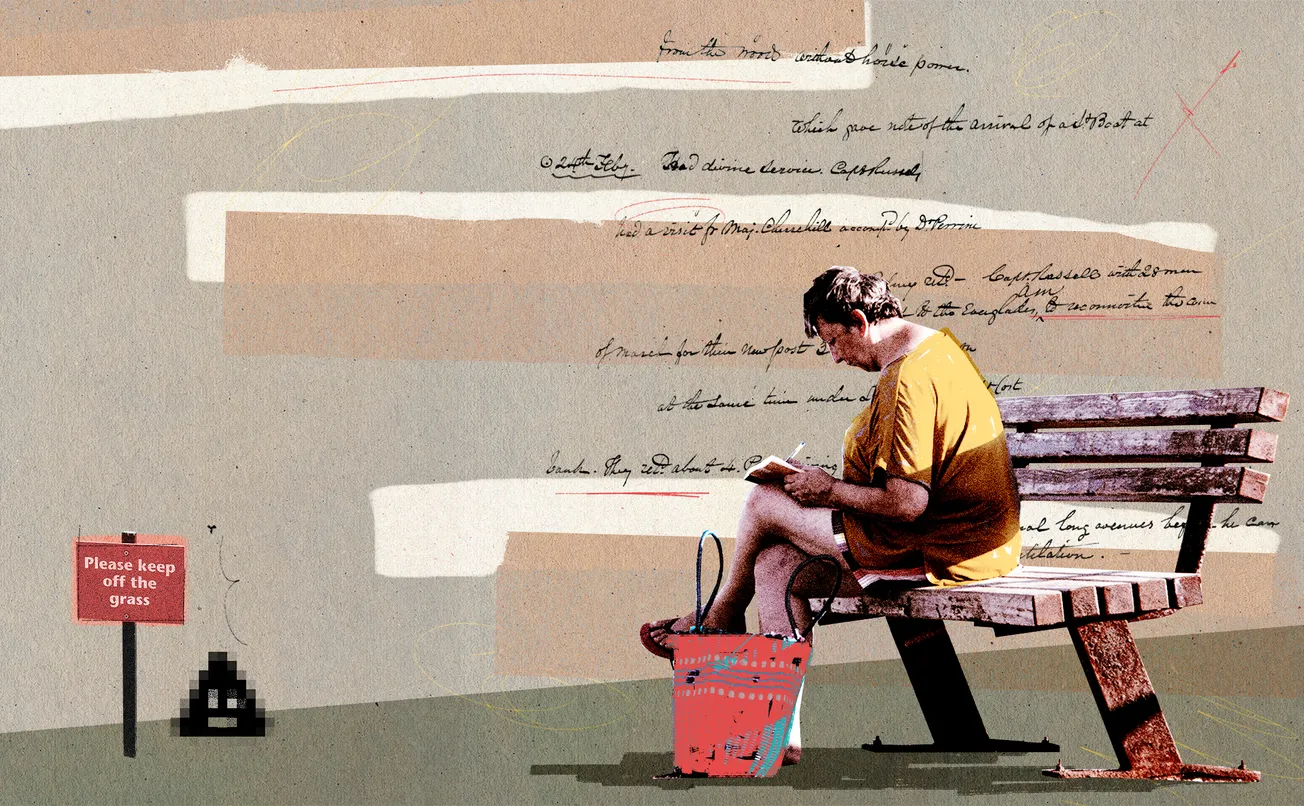Welcome readers to this week’s Tribune briefing. Today’s newsletter has an in depth look at how vaccination rates are varying across the city and what it means for the fight against Covid. It also has all our usual recommendations for things to read and do and an obituary for a city footballing legend.
Help us out: If you’re enjoying our newsletters, please tell your friends about The Tribune by forwarding them this email so they can sign up too. Alternatively, click share below to forward the briefing via text or on social media. We’re very grateful for your help in spreading the word so far. Amazingly, there are already 2,755 Tribbers on the list!
If someone forwarded you this newsletter, please join The Tribune’s mailing list to get all our journalism in your inbox.
We had a fantastic response to our weekend read about why I left my job at The Star to start this newsletter. Hundreds of you joined our email list off the back of it and we’ve had loads of supportive tweets and emails from readers. Welcome to our new readers, and thanks to all of you for being part of this venture so early on.
If you haven’t already seen the piece, you can read it here.
"Newspapers now treat readers as a commodity to be ‘farmed’ for page views, tricked into clicking by clever headlines only to find wafer-thin stories written in minutes" Good luck to @dhayes_news, who has left the Sheffield Star to launch @sheffieldtrib
— Helen Pidd (@helenpidd) 1:19 PM ∙ May 23, 2021
The big story: Vaccination variation
The top line: An astonishing 60 million Covid vaccine doses have now been administered in the UK, with 458,907 of those in Sheffield. This means 60% of adults in the city have received their first dose and 34% have received a second. However, as in many other places, the rollout in the city has been uneven.
Notably, areas with higher deprivation levels and with a higher proportion of non-white residents tend to have some of the lowest uptake rates.
Among the first patients at Sheffield Teaching Hospitals to receive the vaccine were 82-year-old Anthony Moore and 83-year-old Trixie Walker.
— Sheffield Hospitals (@SheffieldHosp) 5:47 PM ∙ Dec 8, 2020
We spoke to Ian Bowns, a retired public health specialist, who has also been involved in a community contact tracing group in the city since last year. He says vaccine uptake has been ‘generally very good’ in Sheffield as a whole, but that some areas are languishing behind in both first and second doses.
Areas of concern: These include Highfield and Lowfield, where only 22% of adults under the age of 65 have been vaccinated, Sharrow where the figure is 27% and Burngreave and Grimesthorpe, where the figure is 29%. Areas with high vaccine uptake are predominantly in the west of the city. In Fulwood and Lodge Moor and Bents Green and Millhouses the figure is 72%. The Sheffield average is 50%.

Ian told The Tribune:
Some of the most vulnerable communities, who have experienced the highest infection rates, have lower uptake rates, and this may be due in part to difficulties accessing vaccination. Low paid workers, those with limited transport options and those with caring responsibilities, for example, have reported difficulties accessing services.
Why this matters: While the virus can circulate among relatively large numbers of younger unvaccinated people, the people who are most at risk are the vulnerable, older unvaccinated in less affluent areas. While cases are falling in Sheffield, they are still increasing in Bolton, Blackburn and, closer to home, in Kirklees.
A divided city: Health inequality is an issue that has plagued Sheffield for decades and Covid has brought those divides into sharp relief. People in the more deprived east of the city have been more likely to catch and die from coronavirus throughout the pandemic, and now they find accessing vaccines more difficult as well. Improved outreach and greater flexibility with access to vaccination appointments is needed, Ian told us.
Go deeper: To find out more about vaccine coverage in Sheffield, you can use Ian’s online tool.
Get in touch: The Tribune is hoping to cover Covid’s unequal impact on the city in more detail in future newsletters. If you have any expertise in this area you could share, please email editor@sheffieldtribune.co.uk.
This week’s weather

Covid-19 Update
- Cases: Covid rates are falling again in Sheffield, with just 35.7 people per 100,000 population testing positive for the disease in the last week, a 26.9% fall on the previous week. However, the rate for people aged 60 and above is just 4.1. The average case rate across England is 21.3.
- Hospitals: There are currently 12 patients being treated for Covid in hospital in Sheffield, the same number as last week. Two of these are on ventilation, a rise from 0 last week. However, there have been no deaths linked to the disease reported in the city in the last seven days.
- Vaccines: 295,157 first doses and 163,750 second doses have now been given out in Sheffield. In the over 65 age group, first doses have now been given to more than 94% of people. More than 80% of over 65s are now fully vaccinated.
Vaccination progresses steadily with 60% of the population vaccinated with one dose, and 34% receiving two doses.
— SheffieldCityCouncil (@SheffCouncil) 2:45 PM ∙ May 21, 2021
The priority to deliver second doses is increasing to protect those who are most risk of harm from COVID-19
The so-called ‘Indian variant’ and a new ‘Yorkshire variant’ are present in Sheffield, it was revealed last week. However, there is no indication at the moment that either is more transmissible, more deadly or more resistant to the vaccines.
Liberty selling Stocksbridge
Very consequential local news this morning: Liberty Steel is going to sell off its Stocksbridge plant as part of a major restructure. The firm — which employs around 750 staff at the site — has been embattled for months after its major financing partner Greensill Capital went to the wall.
BBC business editor Simon Jack has the full story on this Twitter thread.
Breaking. 1/ The UK’s third largest steel maker, Liberty Steel has announced plans to sell off its Stocksbridge steel plant as part of a restructuring plan it says will allow it to pay back one of its main creditors in full....
— Simon Jack (@BBCSimonJack) 11:02 AM ∙ May 24, 2021
We will be reporting on this story in the coming weeks. If you have information to add, please hit reply to this newsletter or email editor@sheffieldtribune.co.uk.
Book of the week
The Book of Sheffield: A City in Short Fiction, edited by Catherine Taylor
When freelance writer and editor Catherine Taylor suggested that specialist short fiction publisher Comma Press bring their Reading the City series to Sheffield, finding authors wasn’t a problem. The city has a wealth of literary talent including Margaret Drabble, Philip Hensher and Helen Mort. In The Book of Sheffield, these well-established authors are joined by emerging writers including Désirée Reynolds and Johnny Pitts, who comes from Firth Park.

Together they have created a book diverse as the city itself, from Drabble’s #MeToo themed ‘The Avenue’ to Gregory Norminton’s ‘How to Love What Dies’ which sees Shefield through the eyes of a refugee. Catherine Taylor grew up in Broomhill where her mum ran a popular independent bookshop. She has since written for the Guardian, the FT and the Economist and is currently writing The Stirrings, a cultural memoir of Sheffield in the 1970s and 1980s.
Order The Book of Sheffield here.
Bear with us
Hot off the press, @tomjnewell’s bear “Quasar One” for the @BearsofSheff trail is finished - and it looks absolutely magnificent! It’s been such a privilege to watch Tom work on this at @ArtcadeG over the last month, thank you 🙏🐻
— The Steel City Snapper (@steelcitysnaps) 4:28 PM ∙ May 18, 2021
#BearsofSheffield #SheffieldIsSuper #Sheffield
Soon to be springing up all over the city, the Bears of Sheffield sculpture trail is nearing completion. Following on from the Herd of Sheffield elephants which were such a hit in 2016, the 60 big and 100 small bears will help Sheffield Children’s Hospital raise money for its Building a Better Future campaign. This will see the trust’s charity help build a new A+E department, a new cancer ward and a helipad. This bear, designed by Sheffield-based artist Tom Newell, is sure to be a popular find.
Our favourite reads
- With the vaccination rollout going so quickly, thoughts are already turning to booster jabs in the autumn. This piece by Sheffield public health expert Dr Andrew Lee explains who might be given a third (or possibly fourth) jab and when, and whether the vaccine will need to change later this year.
- The news that the University of Sheffield’s archaeology department could be under threat of closure generated a lot of coverage this week. A petition to save the department already has over 24,000 signatures while the hashtag #SaveSheffieldArchaeology gives an indication of the strength of feeling.
- An interesting Yorkshire Post piece, written by Keith Ridgway, one of the founders of the Advanced Manufacturing and Research Centre in Rotherham. He argues Sheffield should look to Dortmund in Germany — another former coal and steel city — for inspiration.
- A really moving piece of reporting in the Guardian about ‘smart motorways’, interviewing two people from South Yorkshire who have recently lost loved ones on the M1. Claire Mercer from Rotherham lost her husband Jason in 2019 and has been campaigning for them to be banned ever since.
- Hopefully even Wednesdayites will agree that it was great to see fans back at Bramall Lane on Sunday for the United’s final game of the season. This lovely piece by Star Blades’ reporter Danny Hall decsribes the joy of seeing supporters return after four hundred and forty two days away.
Picturing the past

Park Hill flats were opened by then Labour leader Hugh Gaitskell in June 1961. This great photo shows the excitement the opening caused among the estate’s children, and a solitary policeman looking slightly outnumbered.
Read our piece about Park Hill here.
Things to do
Art: You can now see The Sheffield Project: Photographs of a Changing City in person at the Weston Park Museum. Bill Stephenson’s wonderful photos of the last residents of Hyde Park flats are worth the visit alone.
Listen: A few years old but still available on BBC Sounds is the brilliant short radio documentary Sheffield: City of Snowless Skiers. The doc looks at the working class Sheffield skiers who trained at the city's infamous ski village to prepare for the Sochi Winter Olympic Games — despite there being no snow.
Learn: Wincobank Hillfort has been described as ‘Sheffield’s Acropolis’, but is constantly under threat from development. Sheffield Libraries are putting on an illustrated talk about the hillfort hosted by the legendary activist and historian Penny Rea on Thursday, May 27 at 10.30. Register here.
Visit: Chatsworth House is open to visitors again for the first time in more than six months. Currently on display is the Life Stories exhibition about famous people with connections with the house and two magnificent medieval tapestries which have been in the Devonshire family for more than 500 years.
Drink: Micro-cocktail bar Nook on Shalesmoor had the misfortune to open just one month before the first lockdown. Based in Krynkl — an upcycled shipping container which also houses the Joro restaurant — they also serve beers brewed by super-cool Attercliffe brewery St Mars of the Desert.
Mini obituary
Sad news this week that Sheffield United legend Len Badger, who played for the Blades 541 times between 1962 and 1976, has died aged 75. Born in Darnall, Len played for the team he supported as a boy and was capped at every level in international football for England except the full team.
Len Badger, Sheffield United
— Football Memories (@footballmemorys) 6:36 PM ∙ May 21, 2021
#SUFC #SheffieldUnited #Blades
Sheffield United said the club had lost ‘one of its greatest sons’ while current Blades’ star Billy Sharp revealed Len was his dad’s favourite player, writing on Twitter that he was ‘devastated’ at the news. Len — who is survived by his wife Mal and two children — died as a result of complications from surgery.
If you enjoyed this newsletter, we’d love you to spread the word about The Tribune by sending it to your friends. Simply forward this email or click the share button below.
If you have a story you would like us to look into, hit reply to this briefing or email editor@sheffieldtribune.co.uk.
We are looking for talented local journalists who believe in our mission and want to write for The Tribune. If that’s you, please email us at the email address above.
If someone forwarded you this newsletter, please join The Tribune’s mailing list to get all our journalism in your inbox.

Comments
How to comment:
If you are already a member,
click here to sign in
and leave a comment.
If you aren't a member,
sign up here
to be able to leave a comment.
To add your photo, click here to create a profile on Gravatar.







